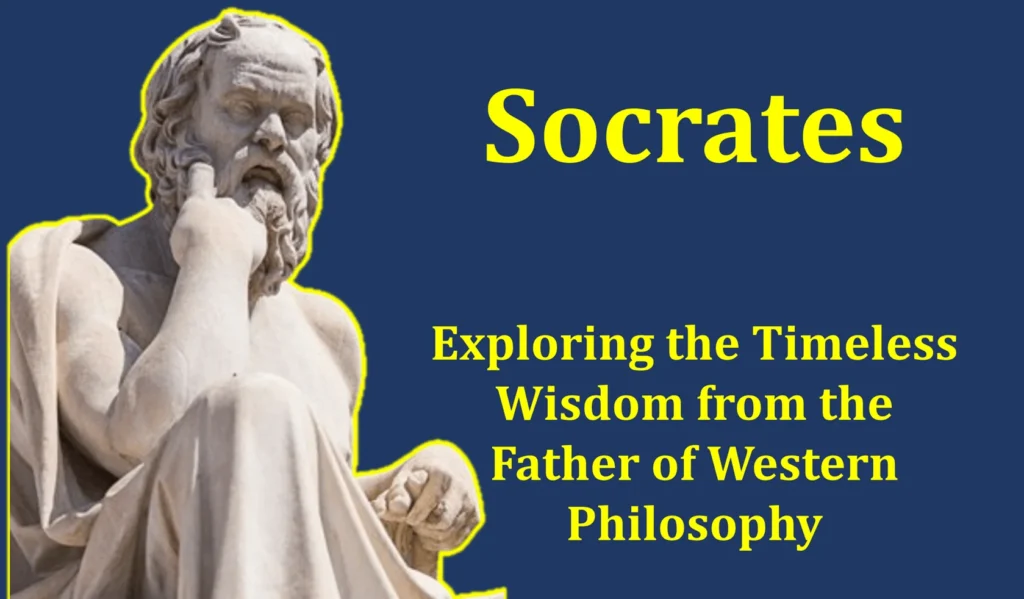
Introduction
Brief overview of Socrates
Socrates, an ancient Greek philosopher born around 470 BCE in Athens, remains one of the most influential figures in the history of Western philosophy. Despite leaving behind no written works of his own, his ideas and methods were preserved and expanded upon by his disciple Plato, making Socrates a central figure in Plato’s dialogues. Socrates is renowned for his commitment to questioning conventional beliefs and seeking truth through rational inquiry, a pursuit that ultimately led to his trial and execution in 399 BCE.
Significance of Socrates in philosophy
Socrates revolutionized philosophical discourse by introducing a method of inquiry known as the Socratic method. This method involves asking probing questions to examine and clarify beliefs, assumptions, and values. Through dialogue and debate, Socrates aimed to lead others to self-discovery and a deeper understanding of fundamental concepts such as justice, virtue, and the nature of the self. His emphasis on critical thinking and the examined life laid the groundwork for Western philosophy and continues to influence philosophical thought to this day.
This blog post seeks to delve into the life, teachings, and legacy of Socrates, shedding light on his enduring significance in the realm of philosophy and beyond. Furthermore, the post will explore the relevance of Socratic philosophy in contemporary society, inviting readers to reflect on how Socrates’ principles can inform their own pursuit of truth, virtue, and wisdom.
Early Life and Background
Birth and upbringing in Athens
Socrates was born in Athens, Greece, around 470 BCE, during a period of significant intellectual and cultural development in the city-state. Little is known about his early life and family background, as historical records from that time are sparse. However, it is believed that he was born into a modest family and received a traditional Athenian upbringing.
Growing up in Athens, he would have been exposed to the vibrant intellectual and artistic atmosphere of the city. Athens was a hub of philosophical, political, and artistic activity, with renowned thinkers like Anaxagoras and Protagoras shaping the intellectual landscape of the time. This environment likely played a formative role in shaping his intellectual curiosity and philosophical inclinations.
Education and influences
Socrates received a basic education in Athens, as was customary for young boys of his social status. He would have been taught reading, writing, mathematics, and music, along with physical training in activities like wrestling and gymnastics. However, his education extended beyond formal schooling, as he demonstrated a keen interest in intellectual pursuits from a young age.
He was influenced by the intellectual currents of his time, including the teachings of earlier philosophers such as Heraclitus and Parmenides. He was also deeply influenced by the intellectual climate of Athens, which encouraged open debate and discussion on matters of philosophy, politics, and ethics. Through interactions with fellow Athenians and engagement with contemporary thinkers, Socrates began to develop his own philosophical outlook and approach to inquiry.
Early career and introduction to philosophy
Initially, Socrates pursued a career as a stonemason, following in the footsteps of his father. However, it was during his early adulthood that Socrates began to devote himself to the pursuit of wisdom and philosophical inquiry. According to historical accounts, Socrates claimed that he was inspired to pursue philosophy by an encounter with the Oracle of Delphi, who declared him to be the wisest of all men.
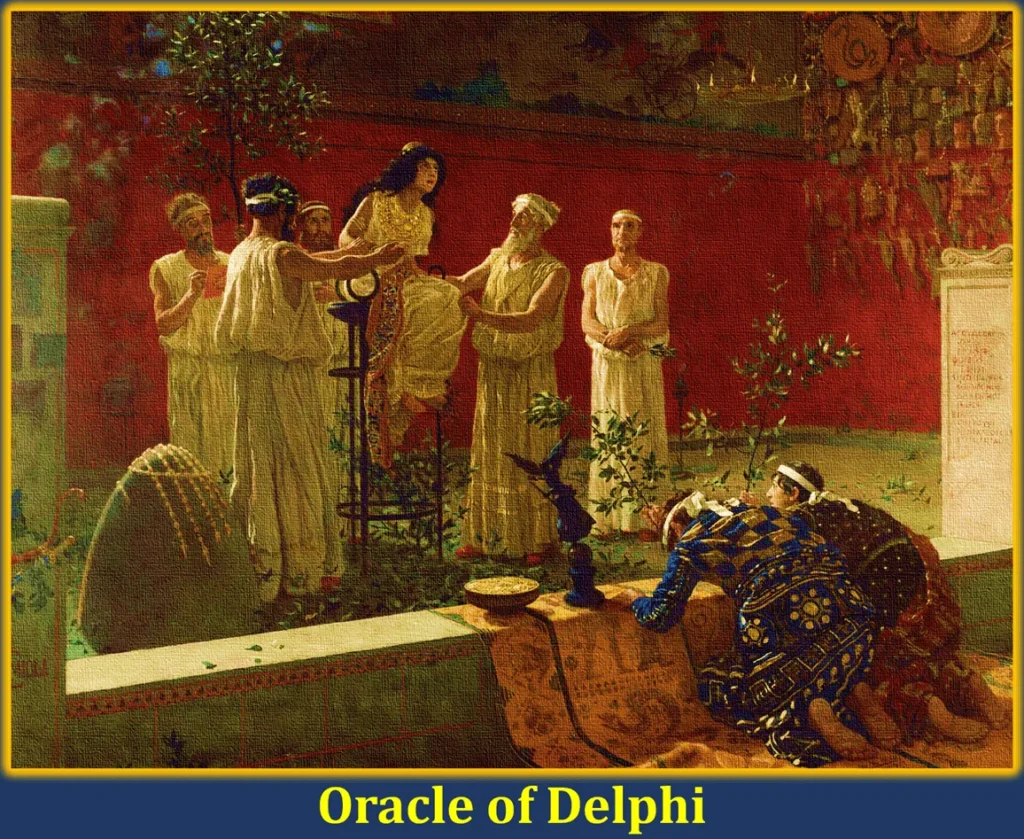
His early philosophical inquiries focused on questions of ethics, morality, and the nature of knowledge. He engaged in discussions with various individuals in Athens, including politicians, poets, and artisans, challenging their beliefs and assumptions through his distinctive method of questioning. This marked the beginning of Socrates’ lifelong commitment to the pursuit of truth and the examination of one’s own beliefs and values—a commitment that would come to define his philosophical legacy.
The Socratic Method
Definition and principles
The Socratic method, also known as Socratic questioning or elenchus, is a form of dialectical inquiry developed by Socrates. At its core, the Socratic method involves a process of questioning and critical examination aimed at eliciting deeper insights, uncovering underlying assumptions, and arriving at a clearer understanding of complex concepts. Key principles of the Socratic method include:
- Questioning assumptions: He believed that genuine knowledge begins with questioning one’s own beliefs and assumptions. Through a series of probing questions, the Socratic method encourages individuals to critically examine their preconceived notions and consider alternative perspectives.
- Seeking truth through dialogue: Rather than providing definitive answers, the Socratic method emphasizes the importance of collaborative inquiry and dialogue. By engaging in thoughtful conversation with others, individuals can collectively explore ideas, challenge misconceptions, and arrive at a deeper understanding of truth.
- Intellectual humility: He advocated for intellectual humility—the recognition of one’s own limitations and the willingness to admit uncertainty. The Socratic method encourages individuals to embrace ambiguity and complexity, recognizing that knowledge is often provisional and subject to revision.
Application in philosophical discourse
Socrates employed the Socratic method extensively in his philosophical dialogues, which were recorded by his disciple Plato. In these dialogues, he engages in conversations with various interlocutors, posing probing questions and engaging in rigorous debate to explore topics such as justice, virtue, piety, and the nature of the self.
One of the defining features of the Socratic method is its focus on examining definitions and concepts. He often begins by asking his interlocutors to provide a definition of a particular concept, such as justice or courage. He then proceeds to scrutinize their definitions through a series of pointed questions, exposing inconsistencies and prompting deeper reflection.
Through this process of dialectical inquiry, he aims to lead his interlocutors to a state of aporia—a state of perplexity or confusion where they recognize the limitations of their own knowledge. Rather than providing them with answers, he encourages his interlocutors to continue questioning and seeking truth on their own.
Impact on pedagogy and critical thinking
The Socratic method has had a profound impact not only on philosophical discourse but also on pedagogy and critical thinking across disciplines. In education, the Socratic method is employed as a teaching tool to foster active engagement, intellectual curiosity, and critical thinking skills.
In classrooms and seminar settings, educators use the Socratic method to stimulate discussion, encourage student participation, and promote deeper understanding of course material. By posing open-ended questions and facilitating dialogue among students, instructors create opportunities for collaborative inquiry and exploration of complex ideas.
Moreover, the Socratic method cultivates skills such as analytical reasoning, logical inference, and the ability to evaluate evidence critically. By engaging in reasoned debate and argumentation, students learn to articulate their ideas effectively, challenge assumptions, and support their claims with sound reasoning and evidence.
Overall, the Socratic method continues to be valued as a powerful tool for cultivating intellectual curiosity, fostering dialogue, and promoting critical thinking skills in both educational and philosophical contexts.
Socratic Philosophy
Ethical framework
Socrates’ ethical philosophy revolves around the central idea of living a virtuous and examined life. He believed that the pursuit of virtue—defined as moral excellence and the cultivation of wisdom—was essential for achieving true happiness and fulfillment. According to Socrates, the unexamined life is not worth living, emphasizing the importance of self-reflection, critical inquiry, and the continuous striving for moral improvement.
He famously asserted that virtue is knowledge, suggesting that ignorance is the root cause of wrongdoing. He argued that people act immorally not out of malice, but due to a lack of understanding of what is truly good and beneficial. Therefore, the key to ethical behavior lies in acquiring wisdom and understanding the nature of virtue through introspection and philosophical inquiry.
In his dialogues, he engages in discussions about various ethical virtues such as courage, justice, piety, and temperance. Through his method of questioning, he challenges conventional beliefs and encourages his interlocutors to critically examine their moral values and principles. Ultimately, Socrates’ ethical framework emphasizes the importance of intellectual and moral integrity, self-awareness, and the pursuit of excellence in all aspects of life.
Epistemology
His epistemological philosophy is characterized by a profound skepticism towards claims of knowledge and a relentless pursuit of truth. He famously proclaimed that he knew nothing except the fact of his own ignorance—an assertion that has come to be known as Socratic irony. By acknowledging his own lack of knowledge, Socrates sought to humble himself before the pursuit of truth and to inspire others to question their own certainty.
Central to Socrates’ epistemology is the belief that genuine knowledge arises from a process of critical examination and self-interrogation. He rejected the notion of relying solely on authority or tradition for knowledge, advocating instead for a method of inquiry based on reason and evidence. Through the Socratic method, he encouraged individuals to engage in dialectical dialogue, challenging their assumptions and beliefs in the quest for deeper understanding.
His emphasis on intellectual humility and the recognition of one’s own limitations continues to influence epistemological discourse, particularly in the realm of scientific inquiry and rational inquiry. His commitment to questioning assumptions, seeking evidence, and pursuing truth remains a guiding principle for those engaged in the pursuit of knowledge.
Political philosophy
In his discussions on political philosophy, he grappled with questions about the nature of justice, the role of the individual in society, and the ideal form of government. While he lived during a time of political upheaval in Athens, he was critical of the Athenian democracy and its shortcomings.
He questioned the notion of democracy as the best form of government, arguing that it was susceptible to manipulation by demagogues and the whims of the majority. He believed that true justice could only be achieved through the rule of philosopher-kings—wise and virtuous individuals who governed with the aim of promoting the common good rather than personal gain.
Despite his criticisms of Athenian democracy, he remained deeply committed to the principles of justice and the rule of law. He famously chose to abide by the decision of the Athenian jury, even when faced with an unjust verdict and the threat of death. His unwavering commitment to his principles, even in the face of adversity, exemplifies his dedication to the pursuit of truth and moral integrity in all aspects of life.
The Trial and Death of Socrates
Historical context: Athens in the 5th century BCE
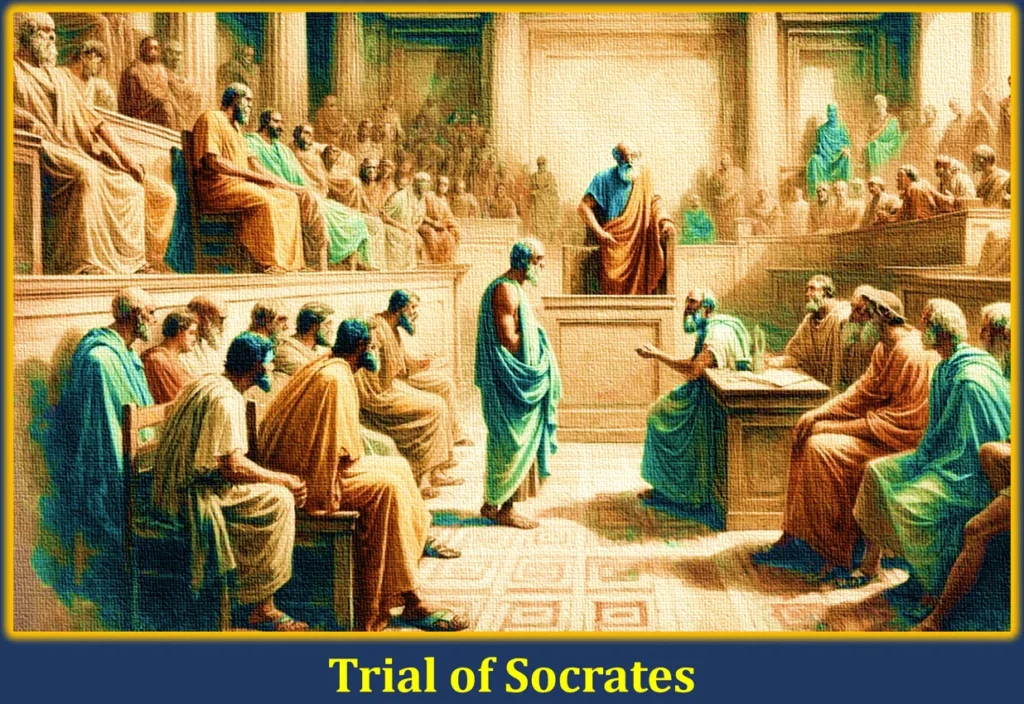
The trial and death of Socrates took place in Athens, Greece, during a tumultuous period in the city-state’s history. Athens was a thriving center of democracy, culture, and intellectual inquiry, but it was also marked by political instability, social unrest, and conflict with neighboring city-states. In the 5th century BCE, Athens had recently emerged victorious from the Persian Wars and was experiencing a period of cultural flourishing known as the Golden Age of Athens, characterized by advancements in art, literature, and philosophy.
However, Athens was also grappling with internal divisions and challenges to its democratic institutions. The rise of charismatic leaders, known as demagogues, and the influence of powerful political factions led to tensions within Athenian society. It was against this backdrop of political upheaval and social change that he found himself embroiled in controversy and ultimately brought to trial.
Charges of impiety and corrupting the youth
In 399 BCE, Socrates was brought to trial on charges of impiety (disrespect for the gods) and corrupting the youth of Athens. These charges stemmed from Socrates’ outspoken criticism of traditional Athenian beliefs and his unorthodox approach to education and philosophical inquiry. Socrates’ habit of questioning authority and challenging the moral and intellectual status quo had earned him both admirers and detractors in Athenian society.
The accusation of impiety was based on Socrates’ alleged refusal to recognize the city’s gods and his introduction of new deities. Additionally, Socrates was accused of corrupting the youth by encouraging them to question established norms and values, leading them astray from traditional Athenian virtues.
Despite his innocence, he faced a hostile jury composed of his fellow Athenian citizens, many of whom were swayed by the accusations brought against him. The trial of Socrates became a symbolic battleground between traditionalism and innovation, highlighting the tension between individual freedom of thought and social conformity in Athenian democracy.
Socrates’ defense and acceptance of death
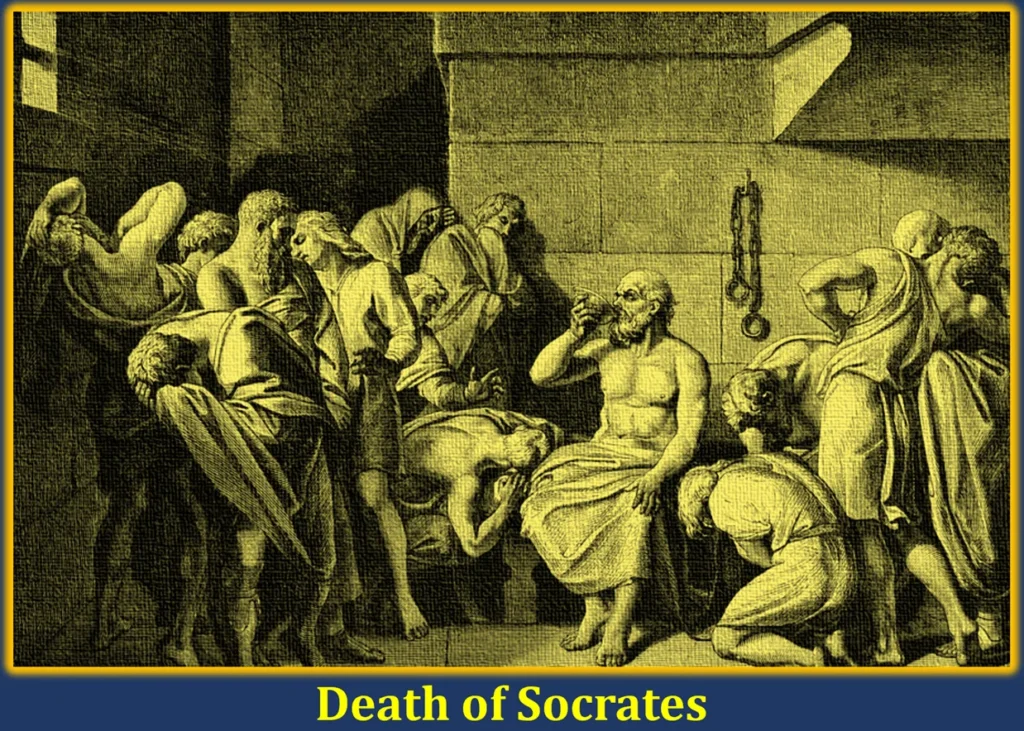
During his trial, he delivered a passionate defense of his philosophical principles and steadfastly maintained his innocence. He argued that his mission as a philosopher was to pursue truth and wisdom, even if it meant challenging conventional beliefs and facing opposition from those in power. He famously declared that he would rather die than abandon his commitment to philosophical inquiry and the pursuit of virtue.
Despite his eloquent defense, Socrates was ultimately found guilty by a narrow margin and sentenced to death by drinking a cup of hemlock—a poisonous substance. In the face of his impending execution, he remained calm and resolute, accepting his fate with dignity and courage. His death marked the end of an era in Athenian philosophy but also cemented his legacy as a martyr for intellectual freedom and the pursuit of truth.
Socrates’ Influence on Western Thought
Legacy of Socratic philosophy in ancient Greece
His philosophical legacy reverberated throughout ancient Greece, laying the groundwork for subsequent developments in Western thought. Despite his lack of written works, Socrates’ ideas and methods were preserved and expanded upon by his disciples, most notably Plato. Plato’s dialogues, which feature Socrates as the central character, became foundational texts in Western philosophy and contributed to the dissemination of Socratic philosophy across the Mediterranean world.
His emphasis on critical thinking, self-examination, and the pursuit of truth resonated with intellectuals and philosophers of his time, inspiring a new generation of thinkers to question established beliefs and engage in philosophical inquiry. His commitment to ethical integrity and the examined life left an indelible mark on ancient Greek culture and paved the way for the flourishing of philosophy in subsequent centuries.
Influence on subsequent philosophers: Plato, Aristotle, and beyond
Socrates’ influence extended far beyond his own lifetime, shaping the thought and writings of subsequent philosophers, including Plato and Aristotle. Plato, Socrates’ most famous disciple, not only preserved his teacher’s ideas in his dialogues but also expanded upon them, developing a comprehensive philosophical system that integrated metaphysics, ethics, and political theory. Aristotle, another student of Plato, further refined Socratic philosophy, laying the groundwork for Western philosophy and science.
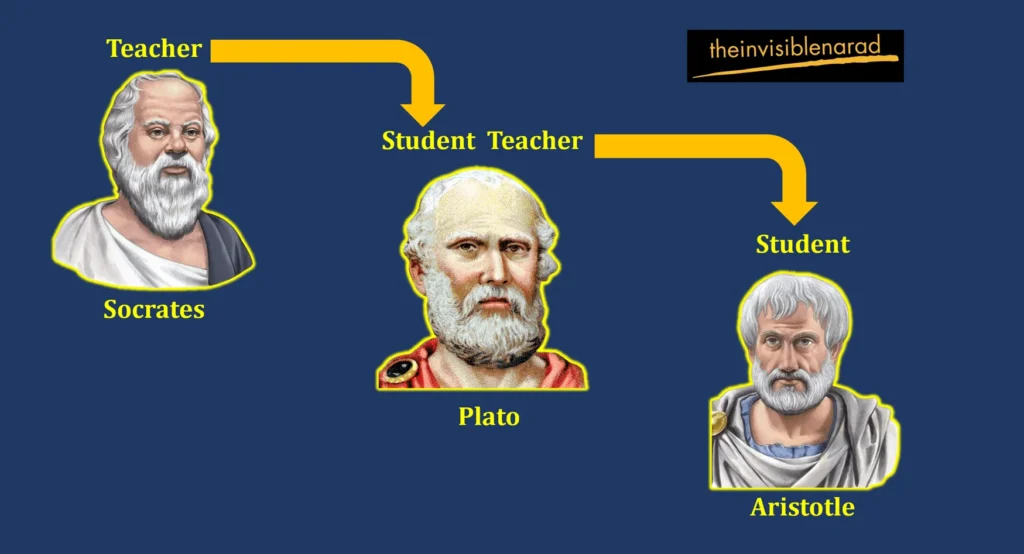
His impact on Western thought is evident in the works of numerous philosophers throughout history, including the Stoics, the Epicureans, and the Neoplatonists. His emphasis on moral virtue, intellectual inquiry, and the pursuit of wisdom continues to resonate with philosophers and scholars across diverse philosophical traditions, transcending cultural and temporal boundaries.
Impact on modern philosophy, education, and ethics
His influence extends into the modern era, shaping the trajectory of philosophy, education, and ethics. His method of inquiry, known as the Socratic method, remains a cornerstone of philosophical pedagogy, used by educators to stimulate critical thinking, foster intellectual curiosity, and promote reasoned discourse.
Moreover, Socratic philosophy has had a profound impact on modern ethical theory, particularly in the fields of virtue ethics and moral psychology. His emphasis on the importance of moral character, self-awareness, and the pursuit of excellence continues to inform contemporary debates about the nature of morality and the good life.
In addition to philosophy and ethics, Socratic principles have also influenced fields such as education, psychology, and political theory. The Socratic method is employed not only in philosophical discourse but also in legal education, psychotherapy, and organizational leadership, highlighting its versatility and enduring relevance in various domains of human endeavor.
Overall, his legacy looms large in Western thought, serving as a perennial source of inspiration and intellectual inquiry for generations of thinkers seeking to understand the nature of reality, the human condition, and the pursuit of wisdom.
Critiques and Interpretations of Socrates
Contemporary criticisms of Socrates’ methods and teachings
While Socrates is revered as one of the greatest philosophers in history, his methods and teachings have not been without criticism. One of the main contemporary criticisms of Socrates revolves around his use of the Socratic method, particularly its potential to be manipulative or coercive in dialogue. Critics argue that Socrates’ relentless questioning could be seen as a form of intellectual bullying, putting his interlocutors on the defensive and steering conversations in predetermined directions.
Furthermore, some modern scholars have raised concerns about the elitism inherent in Socrates’ philosophy, particularly his assertion that only the wise and virtuous are fit to govern. Critics argue that Socrates’ emphasis on intellectual superiority and the rule of philosopher-kings neglects the voices and perspectives of ordinary citizens, undermining the principles of democracy and equality.
Additionally, Socrates’ uncompromising commitment to truth and virtue has been criticized for its potential to lead to moral absolutism and intolerance of dissenting views. Critics contend that Socrates’ insistence on moral purity and intellectual integrity could be dogmatic, stifling diversity of thought and undermining the spirit of open inquiry.
Alternative perspectives on Socrates’ character and intentions
In addition to contemporary criticisms, there are alternative interpretations of Socrates’ character and intentions that challenge traditional views of the philosopher. Some scholars argue that Socrates’ eccentric behavior and unconventional methods may have been intended as a form of performance art or social critique rather than sincere philosophical inquiry. According to this interpretation, Socrates’ provocative questioning and ironic wit were meant to challenge societal norms and provoke reflection rather than arrive at definitive answers.
Furthermore, there are alternative readings of Socrates’ trial and death that question the traditional narrative of martyrdom and heroism. Some scholars argue that Socrates may have been motivated by personal ambition or a desire for martyrdom, rather than a genuine commitment to philosophical principles. Others suggest that Socrates’ trial and execution may have been the result of political intrigue or personal vendettas rather than a principled stand against injustice.
Reevaluating Socrates’ legacy in the context of diverse philosophical traditions
In recent years, there has been a growing interest in reevaluating Socrates’ legacy in the context of diverse philosophical traditions beyond the Western canon. Scholars have explored connections between Socratic philosophy and Eastern philosophies such as Buddhism, Taoism, and Confucianism, highlighting shared themes of self-examination, moral cultivation, and the pursuit of wisdom.
Moreover, there is increasing recognition of the contributions of non-Western philosophers and traditions to the development of Socratic philosophy. Scholars have drawn attention to the influence of Egyptian, Mesopotamian, and Indian thought on ancient Greek philosophy, challenging the Eurocentric narratives that have dominated the study of Western philosophy.
Overall, the critiques and interpretations of Socrates reflect the ongoing dialogue and debate surrounding his legacy in contemporary scholarship. By critically examining Socrates’ methods, teachings, and historical context, scholars seek to gain a deeper understanding of the philosopher and his enduring impact on human thought and culture.
Socrates in Popular Culture and Media
Depictions of Socrates in literature, art, and film
Socrates has been a prominent figure in literature, art, and film for centuries, with numerous depictions capturing his iconic persona and philosophical legacy. In literature, he appears as a central character in works ranging from Plato’s dialogues to modern novels and plays. Artists throughout history have depicted him in paintings, sculptures, and other visual mediums, often portraying him as a bearded, contemplative figure engaged in philosophical discourse.
In addition to traditional artistic representations, Socrates has been portrayed in film and television adaptations, bringing his story and ideas to a wider audience. Filmmakers have explored various aspects of Socrates’ life and philosophy, from his trial and death to his interactions with fellow Athenians and disciples. These cinematic portrayals offer new interpretations of his character and legacy, inviting viewers to engage with his ideas in a dynamic and immersive way.
Socratic themes in contemporary discourse and media
Socratic themes and motifs continue to resonate in contemporary discourse and media, reflecting the enduring relevance of his ideas in modern society. In literature, film, and television, characters and narratives often grapple with questions of truth, morality, and the pursuit of wisdom—themes that echo Socrates’ own philosophical inquiries.
Moreover, the Socratic method remains a powerful tool for fostering critical thinking and dialogue in various domains, including education, law, and public discourse. Educators, journalists, and policymakers employ Socratic questioning techniques to stimulate discussion, challenge assumptions, and promote reasoned inquiry into complex issues.
In popular culture, references to him and his aphorisms abound, with phrases such as “know thyself” and “the unexamined life is not worth living” becoming enduring catchphrases in contemporary discourse. His emphasis on self-awareness, intellectual humility, and the pursuit of truth continues to inspire individuals seeking to navigate the complexities of modern life.
Popularity and enduring fascination with Socrates’ persona
Despite living more than two millennia ago, Socrates remains a figure of enduring fascination and intrigue in popular culture. His enigmatic persona, characterized by his eccentric appearance, provocative questioning, and unwavering commitment to truth, has captured the imagination of artists, writers, and thinkers across generations.
Part of Socrates’ enduring popularity lies in the ambiguity and complexity of his character, which lends itself to multiple interpretations and reinterpretations. Whether portrayed as a martyr for intellectual freedom or a gadfly challenging the status quo, Socrates continues to captivate audiences with his unorthodox approach to philosophy and his unwavering dedication to his principles.
Lessons from Socrates for Today’s World
Relevance of His principles in modern society
The principles espoused by him continue to hold relevance in today’s world, offering valuable insights into ethics, critical thinking, and personal development. His emphasis on questioning assumptions, seeking truth, and living an examined life resonates with individuals navigating the complexities of modern society. In an era marked by misinformation, polarization, and ethical dilemmas, Socratic principles provide a framework for navigating moral ambiguity, fostering intellectual humility, and promoting a culture of reasoned discourse and inquiry.
Applying the Socratic method in everyday life and education
His method offers a powerful tool for fostering critical thinking, communication skills, and intellectual curiosity in everyday life and education. By encouraging individuals to question assumptions, engage in dialogue, and critically evaluate evidence, the Socratic method cultivates a deeper understanding of complex issues and promotes collaborative problem-solving. In educational settings, teachers can employ Socratic questioning techniques to stimulate discussion, enhance student engagement, and foster a culture of inquiry and exploration.
Ethical insights from Socrates for personal and societal improvement
Socrates’ ethical philosophy provides valuable insights into moral integrity, self-awareness, and the pursuit of virtue for personal and societal improvement. His emphasis on moral excellence, intellectual honesty, and the cultivation of wisdom offers a roadmap for individuals seeking to lead meaningful and fulfilling lives. By striving to align their actions with ethical principles and engaging in self-reflection and introspection, individuals can cultivate the virtues of courage, justice, and compassion championed by Socrates, contributing to the betterment of themselves and their communities.
Conclusion & FAQs
Socrates, an ancient Greek philosopher, remains an iconic figure in the history of Western thought, known for his unwavering commitment to truth, moral integrity, and the examined life. Despite living more than two millennia ago, his ideas and methods continue to inspire individuals seeking wisdom, meaning, and ethical guidance in today’s world.
Socrates’ legacy transcends the boundaries of time and culture, leaving an indelible mark on human thought and culture. His emphasis on critical thinking, intellectual humility, and the pursuit of virtue continues to resonate with individuals seeking to navigate the complexities of modern life. As we reflect on Socrates’ enduring legacy, we are reminded of the power of philosophy to inspire, enlighten, and transform the human condition.
In conclusion, we invite readers to delve deeper into the life, teachings, and legacy of Socrates, exploring the rich tapestry of ideas and insights he has bequeathed to humanity. By engaging with Socratic philosophy, we can gain a deeper understanding of ourselves, our world, and the timeless quest for truth, wisdom, and ethical living. As we continue to grapple with the challenges and opportunities of the modern age, let us draw inspiration from Socrates’ example and strive to uphold the values of reason, virtue, and moral integrity in our own lives and communities.
Frequently Asked Questions (FAQs)
Who was Socrates and why is he famous?
He was an ancient Greek philosopher known for his profound influence on Western philosophy. He is famous for his distinctive method of questioning, known as the Socratic method, and his commitment to the pursuit of truth and virtue.
What is the Socratic method?
The Socratic method is a form of dialectical inquiry developed by Socrates. It involves asking probing questions to stimulate critical thinking, challenge assumptions, and arrive at deeper insights. The goal of the Socratic method is to encourage self-examination and promote a clearer understanding of complex concepts.
Did Socrates write any books or texts?
No, Socrates did not write any books or texts himself. Instead, his ideas and teachings were preserved and expanded upon by his disciple Plato, who recorded many of Socrates’ dialogues in his own writings.
What were the main ideas of Socrates’ philosophy?
Socrates’ philosophy focused on ethical inquiry, the pursuit of wisdom, and the importance of living an examined life. He emphasized the virtues of intellectual honesty, moral integrity, and self-awareness, arguing that true happiness and fulfillment come from cultivating virtue and understanding.
What was the trial and death of Socrates?
Socrates was brought to trial in Athens on charges of impiety and corrupting the youth. Despite delivering a passionate defense, he was found guilty and sentenced to death by drinking a cup of hemlock. Socrates accepted his fate with dignity, choosing to uphold his principles rather than compromise his beliefs.
How did Socrates influence Western philosophy?
Socrates’ influence on Western philosophy was profound and far-reaching. His emphasis on critical thinking, intellectual humility, and the pursuit of truth laid the groundwork for subsequent philosophical traditions. Through his disciple Plato and others, Socrates’ ideas continued to shape the development of philosophy in ancient Greece and beyond.
What lessons can we learn from Socrates today?
Socrates’ emphasis on questioning assumptions, seeking truth, and living an examined life offers valuable insights for navigating the complexities of modern society. His commitment to intellectual honesty, moral integrity, and the pursuit of virtue continues to inspire individuals seeking wisdom, meaning, and ethical guidance in today’s world.

Nice blog here Also your site loads up very fast What host are you using Can I get your affiliate link to your host I wish my site loaded up as quickly as yours.